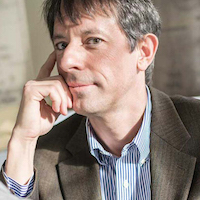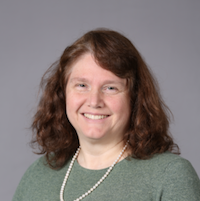NextGen AI
The NextGen AI task force was established in fall 2022 to focus on avenues to broaden the impacts of AI by examining and overcoming the limits and pitfalls of the field.
Current Members:
2020 Quadrennial Papers
Every four years the Computing Research Association, through its subcommittees, publishes a series of white papers called Quadrennial Papers that explore areas and issues around computing research with potential to address national priorities. The white papers attempt to portray a comprehensive picture of the computing research field detailing potential research directions, challenges, and recommendations. Below are the AI related quadrennial papers from 2020:
- Imagine All the People: Citizen Science, Artificial Intelligence, and Computational Research white paper
- Artificial Intelligence at the Edge white paper
- Artificial Intelligence & Cooperation white paper
- Interdisciplinary Approaches to Understanding Artificial Intelligence’s Impact on Society white paper
- The Rise of AI-Driven Simulators: Building a New Crystal Ball white paper
- Next Wave Artificial Intelligence: Robust, Explainable, Adaptable, Ethical, and Accountable white paper
- Infrastructure for Artificial Intelligence, Quantum and High Performance Computing white paper
- Robotics Enabling the Workforce white paper
Artificial Intelligence Roadmap
In 2018, the working group led the CCC’s effort to generate an AI Roadmap. The Roadmap activity was chaired by Yolanda Gil (University of Southern California and President-Elect of AAAI) and Bart Selman (Cornell University), this new effort is in support of the Administrations’ efforts in this area, and will bring together academic and industrial researchers and federal agency representatives to help chart a course for needed research in AI, through a series of workshops in the Fall of 2018, resulting in a Roadmap to be produced in the Spring of 2019. The National Science Foundation (NSF) Directorate for Computing and Information Science and Engineering (CISE) is supporting the effort, and Henry Kautz, Division Director for Intelligent Intelligent Information Systems is helping to coordinate the effort with the CCC. This effort is similar to one of the CCC’s first activities, the Robotics Roadmap, which helped to launch the National Robotics Initiative in 2011 and the subsequent 2016 Robotics Roadmap and NRI 2.0.
Three workshops were held and you can learn more about each workshop on their respective webpages linked below or the Roadmap webpage.
- Workshop 1 – Integrated Intelligence (November 2018)
- Workshop 2 – Interaction (January 2019)
- Workshop 3 – Learning and Robotics (January 2019)
Here is the link to the whole report (117 pages).
Below are links to individual sections:
- Executive Summary (5 pages)
- Introduction (5 pages)
- Major Findings (4 pages)
- Recommendations (22 pages)
- Major Societal Drivers for Future Artificial Intelligence Research (4 pages)
- Core Technical Areas of AI Research Roadmap
- A Research Roadmap for Integrated Intelligence (19 pages)
- A Research Roadmap for Meaningful Interaction (27 pages)
- A Research Roadmap for Self-Aware Learning (26 pages)
- Conclusions (1 pages)
- Appendices (participants and contributors; 2 pages)
Additional Resources
Below are some CCC materials produced by the now-retired AI task force and curated for this working group, which include:
- AI for Social Good workshop report
- Tom Kalil’s AI for Good paper (draft)
- Videos from the AAAI Symposium on AI for Social Good
- Advances in Artificial Intelligence Require Progress Across all of Computer Science white paper
- Videos from the Artificial Intelligence for Social Good workshop
- Next Generation Robotics white paper
- Robotics white paper
- CCC Blog post, “Thoughts from White House Frontier’s Conference and the National AI R&D Strategic Plan“
- CCC Blog post, “White House OSTP Report- Preparing for the Future of Artificial Intelligence“
- CCC Blog post, “World’s Largest Technology Companies Create Historic Partnership on AI“
- CCC Blog post, “One Hundred Year Study on Artificial Intelligence“
- CCC Blog post, “Artificial Intelligence for Social Good“
Artificial Intelligence Videos:
The video playlist below features the videos from AI and Amplifying Human Abilities Plenary and Panel at the 2017 Computing Research Symposium. Details about the speakers are below.
Plenary: Thad Starner, Georgia Tech/Google’s Glass – Augmenting Intellect through Wearables and Artificial Intelligence
Moderator: Beth Mynatt, CCC Chair/Georgia Tech
Panelists:
- Brenna Argall, Northwestern University – Human Autonomy through Robotics Autonomy
- Jeffrey P. Bingham, Carnegie Mellon University – Deep Integration of Human and Machine Intelligence for Accessibility
- Suchi Saria, Johns Hopkins University – Humans and Machine Working Together to Spot Diseases Faster
- Cliff Young, Google Brain Team – Deep Learning, Special-Purpose Hardware, and Some Hard Problems
The following playlist features videos from the AAAI Symposium for AI for Social Good.
The following playlist features videos from the workshop on Artificial Intelligence for Social Good.
Science and Policy Materials on AI:
NITRD – In October 2016, the Networking and Information Technology Research and Development (NITRD) Program released the The National Artificial Intelligence Research and Development Strategic Plan which identifies the strategies and priorities for Federally-funded AI research.
OSTP – In October 2016,the White House Office of Science and Technology Policy (OSTP) published the Preparing for the Future of Artificial Intelligence report, which “surveys the current state of AI, its existing and potential applications, and the questions that are raised for society and public policy by progress in AI. The report also makes recommendations for specific further actions by Federal agencies and other actors.”
White House OSTP Request for Information (RFI) for AI – In June 2016, OSTP announced a new Request for Information (RFI) on Artificial Intelligence (AI), to solicit feedback on how the United States can best prepare for the future of AI. According to the OSTP Blog, they “received 161 responses from a range of stakeholders, including individuals, academics and researchers, non-profit organizations, and industry.” All of the responses are now public and can be found here. The CCC’s response can be found here.
AI-related Events:
OSTP Workshop Series – In May, 2016 OSTP announced four workshops (later a fifth was added) surrounding the future of artificial intelligence to explore the opportunities and challenges that AI presents.
- Artificial Intelligence for Social Good – The CCC co-hosted the second OSTP AI Workshop, Artificial Intelligence for Social Good, with OSTP and AAAI. In this workshop, we discussed the successful deployments and the potential use of AI in various topics that are essential for social good, including but not limited to urban computing, health, environmental sustainability, and public welfare. You can learn more about the workshop here.
- Artificial Intelligence: Law and Policy – The first workshop in the series was co-hosted by the University of Washington School of Law, the White House, and UW’s Tech Policy Lab, “the event places leading artificial intelligence experts from academia and industry in conversation with government officials interested in developing a wise and effective policy framework for this increasingly important technology.”
- The Future of Artificial Intelligence – The third workshop, co-hosted by Stanford University and OSTP, featured “leading artificial intelligence (AI) researchers will discuss the most impactful research topics in AI and highlight the challenges and potentials of artificial intelligence.”
- Workshop on Safety and Control for Artificial Intelligence – The fourth workshop was co-hosted by Carnegie Mellon University and OSTP and included “keynote talks and panel discussions that explore the potential future of AI and AI applications, the emerging technical means for constructing safe and secure systems, how safety might be assured, and how we can make progress on the challenges of safety and control for AI.”
- The Social and Economic Implications of Artificial Intelligence Technologies in the Near-Term – The fifth workshop in the series was co-hosted by the NYU Information Law Institute and the White House generated “a foundational discussion about the role of AI in social and economic systems.”
One Hundred Year Study on AI – “The One Hundred Year Study on Artificial Intelligence, or AI100, is a 100-year effort to study and anticipate how the effects of artificial intelligence will ripple through every aspect of how people work, live and play” and is the brainchild of task force co-chair Eric Horvitz. Learn more about the One Hundred Year Study here and view the 2016 report here.
AAAI Symposium on AI for Social Good – In 2016, the CCC co-sponsored a workshop on Artificial Intelligence for Social Good with AAAI and OSTP. In order to further the discussion of the benefits of AI to society, the CCC will co-sponsor the AAAI 2017 Spring Symposium on AI for Social Good at Stanford University, March 27-29. This symposium will focus on the promise of AI across multiple sectors of society. Learn more about the Symposium here.
Symposium on Accelerating Science: A Grand Challenge for AI – In November 2016, the CCC co-sponsored a AAAI Symposium that brought together researchers in relevant areas of artificial intelligence (e.g., machine learning, causal inference, knowledge representation and inference, planning, decision making, human computer interaction, distributed problem solving, natural language processing, multi-agent systems, semantic web, information integration, scientific workflows), high performance data and computing infrastructures and services, and selected application areas (e.g., life sciences, learning sciences, health sciences, social sciences, food energy and water nexus) to discuss progress on, and articulate a research agenda aimed at addressing, the AI grand challenge of accelerating science. A workshop report is in progress.
Other Resources:
Partnership on AI – In September, 2016 Amazon, DeepMind/Google, Facebook, IBM, and Microsoft “announced that they will create a non-profit organization that will work to advance public understanding of artificial intelligence technologies (AI) and formulate best practices on the challenges and opportunities within the field. Academics, non-profits, and specialists in policy and ethics will be invited to join the Board of the organization, named the Partnership on Artificial Intelligence to Benefit People and Society (Partnership on AI).” You can read the full press release here.
2016 Robotics Roadmap – In 2009, the CCC released A Roadmap for US Robotics, From Internet to Robotics (Robotics Roadmap). The Robotics Roadmap explored the capacity of robotics to act as a key economic enabler, specifically in the areas of manufacturing, healthcare, and in the service industry, 5, 10, and 15 years into the future and was influential in developing 2011’s National Robotics Initiative (NRI). An updated version of the Robotics Roadmap was released in November, 2016 and it expands on the topics discussed in the 2009 roadmap as well as addressing the areas of public safety, earth science, and workforce develop. You can read the full 2016 roadmap here.
Press Articles and Thought Pieces:
The Terminator and the Washing Machine, New York Times
Three Ways Artificial Intelligence is Helping to Save the World, Erin Biba, Freelance Science Journalist
The Terminator and the Washing Machine, New York Times Video on the limitations of AI
Machine Learning and the Profession of Medicine, The Journal of the American Medical Association
Protecting Humans and Jobs From Robots Is 5 Tech Giants’ Goal, New York Times
How the Scary Potential of AI Brought Tech Competitors Together, Mashable
Tech Giants’ Partnership To Explore Ethics, Societal Impacts of AI, Xconomy

 Maria Gini
Maria Gini
 Sven Koenig
Sven Koenig Raj Rajaraman
Raj Rajaraman Matthew Turk
Matthew Turk Holly Yanco
Holly Yanco




